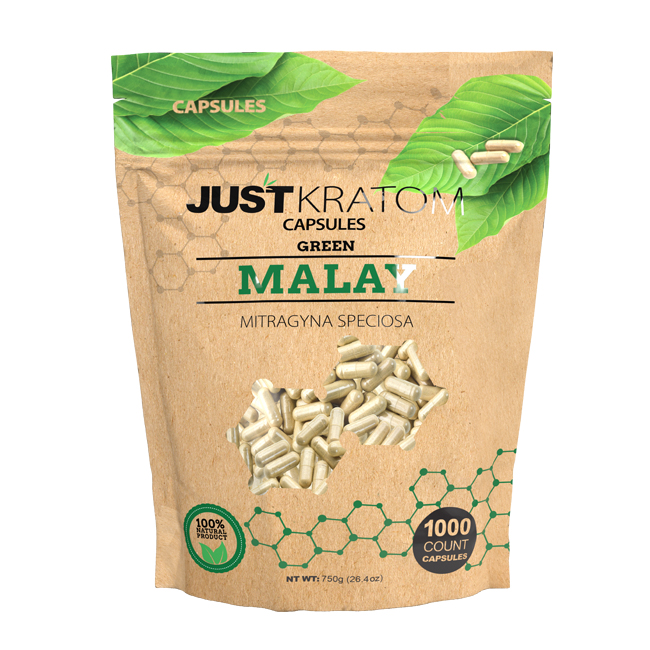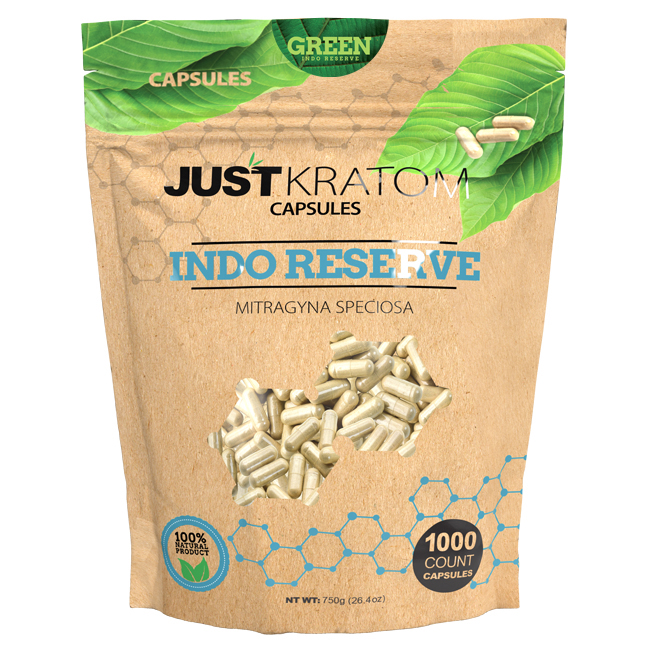Potential Physical Side Effects
Kratom capsules, while gaining popularity for their purported effects, can have potential physical side effects that users should be aware of. Understanding these potential impacts is crucial for making informed decisions about kratom use and mitigating risks to one’s health.
Gastrointestinal Issues
Gastrointestinal issues are among the most commonly reported side effects of kratom consumption. Users may experience nausea, vomiting, diarrhea, constipation, stomach cramps, and abdominal pain. These effects can vary in intensity depending on the dosage, individual sensitivity, and preparation method of the kratom.
Cardiovascular Effects
Cardiovascular effects are another potential concern associated with kratom use.
- Increased heart rate
- Elevated blood pressure
- Changes in heart rhythm
Musculoskeletal Problems
Musculoskeletal problems can also arise from kratom use. These issues often manifest as muscle aches, joint pain, and stiffness. Kratom’s impact on the nervous system may contribute to these symptoms by interfering with pain perception and potentially affecting muscle function.
Neurological Side Effects
Neurological side effects are a significant concern associated with kratom consumption. These effects can range from mild discomfort to more serious issues impacting cognitive function and overall well-being.
- Headaches
- Dizziness
- Anxiety
- Insomnia
- Paranoia
In some cases, kratom can lead to more severe neurological complications, including seizures and psychosis.
Potential Psychological Side Effects
Beyond the potential for physical side effects, kratom use can also have a significant impact on mental and psychological well-being.
Anxiety and Depression
Anxiety and depression are among the potential psychological side effects associated with kratom use. Kratom’s interactions with neurotransmitters in the brain, particularly dopamine and serotonin, may contribute to these emotional disturbances.
Users may experience heightened feelings of anxiety, restlessness, and irritability. Similarly, kratom can exacerbate existing depressive symptoms or lead to the development of new ones, characterized by sadness, hopelessness, and loss of interest in activities.
Mood Swings and Irritability
Mood swings are another common psychological side effect linked to kratom use. The fluctuating effects of kratom on neurotransmitters can lead to unpredictable shifts in mood, ranging from euphoria to irritability or anger. These rapid changes in emotional state can be disruptive and challenging for individuals trying to manage their mental well-being.
It’s important to recognize that the potential for psychological side effects varies depending on individual sensitivity, dosage, frequency of use, and other factors. If you experience persistent or severe psychological side effects after using kratom, it is crucial to seek professional medical advice.
Addiction and Dependence
Kratom can lead to both physical dependence and addiction. Physical dependence develops when the body adapts to the presence of kratom and experiences withdrawal symptoms when it’s no longer present. These withdrawal symptoms can include nausea, vomiting, diarrhea, muscle aches, anxiety, and insomnia. Addiction, on the other hand, involves compulsive drug-seeking behavior despite negative consequences.
The risk of developing dependence or addiction to kratom is influenced by factors like dosage, frequency of use, individual genetics, and pre-existing mental health conditions. Regular, heavy use of kratom significantly increases the likelihood of experiencing dependence and addiction.
It’s important to understand that while kratom may be marketed as a natural remedy, it can still have serious consequences for those who misuse it. If you are considering using kratom or are concerned about potential dependence or addiction, consult with a healthcare professional for guidance and support.

Interactions with Medications and Substances

Kratom capsules, gaining popularity for their purported effects, may lead to various side effects that users should be aware of. Understanding these potential impacts is crucial for making informed decisions about kratom use and minimizing risks to one’s health.
Drug Interactions
Interactions with Medications and Substances: It’s important to note that kratom can interact with a variety of medications, potentially leading to adverse effects or reduced effectiveness of the medication.
Drug interactions can occur when kratom interacts with substances like antidepressants, opioids, anti-anxiety medications, blood thinners, and stimulants. These interactions can have unpredictable consequences, ranging from mild discomfort to serious health complications.
It is crucial to consult with a healthcare professional before using kratom if you are taking any medications to ensure that there are no potentially harmful interactions.
Alcohol Interactions
Kratom capsules, while gaining popularity for their purported effects, may lead to various side effects that users should be aware of. Understanding these potential impacts is crucial for making informed decisions about kratom use and minimizing risks to one’s health.
Gastrointestinal issues are among the most commonly reported side effects of kratom consumption. Users may experience nausea, vomiting, diarrhea, constipation, stomach cramps, and abdominal pain. These effects can vary in intensity depending on the dosage, individual sensitivity, and preparation method of the kratom.
Cardiovascular effects are another potential concern associated with kratom use.
- Increased heart rate
- Elevated blood pressure
- Changes in heart rhythm
Musculoskeletal problems can also arise from kratom use. These issues often manifest as muscle aches, joint pain, and stiffness. Kratom’s impact on the nervous system may contribute to these symptoms by interfering with pain perception and potentially affecting muscle function.
Neurological side effects are a significant concern associated with kratom consumption. These effects can range from mild discomfort to more serious issues impacting cognitive function and overall well-being.
- Headaches
- Dizziness
- Anxiety
- Insomnia
- Paranoia
In some cases, kratom can lead to more severe neurological complications, including seizures and psychosis. Beyond the potential for physical side effects, kratom use can also have a significant impact on mental and psychological well-being.
Anxiety and depression are among the potential psychological side effects associated with kratom use. Kratom’s interactions with neurotransmitters in the brain, particularly dopamine and serotonin, may contribute to these emotional disturbances. Users may experience heightened feelings of anxiety, restlessness, and irritability. Similarly, kratom can exacerbate existing depressive symptoms or lead to the development of new ones, characterized by sadness, hopelessness, and loss of interest in activities.
Mood swings are another common psychological side effect linked to kratom use. The fluctuating effects of kratom on neurotransmitters can lead to unpredictable shifts in mood, ranging from euphoria to irritability or anger. These rapid changes in emotional state can be disruptive and challenging for individuals trying to manage their mental well-being.
It’s important to recognize that the potential for psychological side effects varies depending on individual sensitivity, dosage, frequency of use, and other factors. If you experience persistent or severe psychological side effects after using kratom, it is crucial to seek professional medical advice.
Kratom can lead to both physical dependence and addiction. Physical dependence develops when the body adapts to the presence of kratom and experiences withdrawal symptoms when it’s no longer present. These withdrawal symptoms can include nausea, vomiting, diarrhea, muscle aches, anxiety, and insomnia. Addiction, on the other hand, involves compulsive drug-seeking behavior despite negative consequences.The risk of developing dependence or addiction to kratom is influenced by factors like dosage, frequency of use, individual genetics, and pre-existing mental health conditions. Regular, heavy use of kratom significantly increases the likelihood of experiencing dependence and addiction.It’s important to understand that while kratom may be marketed as a natural remedy, it can still have serious consequences for those who misuse it. If you are considering using kratom or are concerned about potential dependence or addiction, consult with a healthcare professional for guidance and support.
Interactions with Medications and Substances: It’s important to note that kratom can interact with a variety of medications, potentially leading to adverse effects or reduced effectiveness of the medication. Drug interactions can occur when kratom interacts with substances like antidepressants, opioids, anti-anxiety medications, blood thinners, and stimulants. These interactions can have unpredictable consequences, ranging from mild discomfort to serious health complications. It is crucial to consult with a healthcare professional before using kratom if you are taking any medications to ensure that there are no potentially harmful interactions.
Long-Term Health Risks
Kratom capsules, while gaining popularity for their purported effects, can have potential physical side effects that users should be aware of. Understanding these potential impacts is crucial for making informed decisions about kratom use and mitigating risks to one’s health.
Gastrointestinal issues are among the most commonly reported side effects of kratom consumption. Users may experience nausea, vomiting, diarrhea, constipation, stomach cramps, and abdominal pain. These effects can vary in intensity depending on the dosage, individual sensitivity, and preparation method of the kratom.
Cardiovascular effects are another potential concern associated with kratom use.
- Increased heart rate
- Elevated blood pressure
- Changes in heart rhythm
Musculoskeletal problems can also arise from kratom use. These issues often manifest as muscle aches, joint pain, and stiffness. Kratom’s impact on the nervous system may contribute to these symptoms by interfering with pain perception and potentially affecting muscle function.
Neurological side effects are a significant concern associated with kratom consumption. These effects can range from mild discomfort to more serious issues impacting cognitive function and overall well-being.
- Headaches
- Dizziness
- Anxiety
- Insomnia
- Paranoia
In some cases, kratom can lead to more severe neurological complications, including seizures and psychosis.
Beyond the potential for physical side effects, kratom use can also have a significant impact on mental and psychological well-being.
Anxiety and depression are among the potential psychological side effects associated with kratom use. Kratom’s interactions with neurotransmitters in the brain, particularly dopamine and serotonin, may contribute to these emotional disturbances. Users may experience heightened feelings of anxiety, restlessness, and irritability. Similarly, kratom can exacerbate existing depressive symptoms or lead to the development of new ones, characterized by sadness, hopelessness, and loss of interest in activities.
Mood swings are another common psychological side effect linked to kratom use. The fluctuating effects of kratom on neurotransmitters can lead to unpredictable shifts in mood, ranging from euphoria to irritability or anger. These rapid changes in emotional state can be disruptive and challenging for individuals trying to manage their mental well-being.
It’s important to recognize that the potential for psychological side effects varies depending on individual sensitivity, dosage, frequency of use, and other factors. If you experience persistent or severe psychological side effects after using kratom, it is crucial to seek professional medical advice.
Kratom can lead to both physical dependence and addiction. Physical dependence develops when the body adapts to the presence of kratom and experiences withdrawal symptoms when it’s no longer present. These withdrawal symptoms can include nausea, vomiting, diarrhea, muscle aches, anxiety, and insomnia. Addiction, on the other hand, involves compulsive drug-seeking behavior despite negative consequences.
The risk of developing dependence or addiction to kratom is influenced by factors like dosage, frequency of use, individual genetics, and pre-existing mental health conditions. Regular, heavy use of kratom significantly increases the likelihood of experiencing dependence and addiction.
It’s important to understand that while kratom may be marketed as a natural remedy, it can still have serious consequences for those who misuse it. If you are considering using kratom or are concerned about potential dependence or addiction, consult with a healthcare professional for guidance and support.
Interactions with Medications and Substances: It’s important to note that kratom can interact with a variety of medications, potentially leading to adverse effects or reduced effectiveness of the medication. Drug interactions can occur when kratom interacts with substances like antidepressants, opioids, anti-anxiety medications, blood thinners, and stimulants. These interactions can have unpredictable consequences, ranging from mild discomfort to serious health complications. It is crucial to consult with a healthcare professional before using kratom if you are taking any medications to ensure that there are no potentially harmful interactions.
Get premium Kratom capsules for all-day energy
- Why Can’t You Wear Lipstick After Lip Fillers? - November 4, 2025
- What Is The Best Filler For Jowls And Marionette Lines? - November 1, 2025
- What Are The Alternatives To Bum Filler Injections? - October 31, 2025
